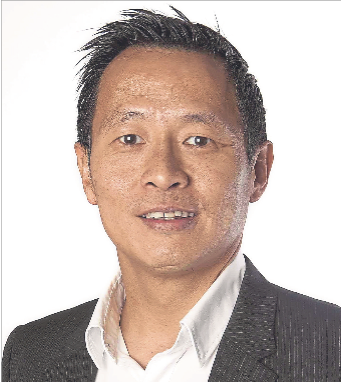In the spotlight in this edition is Paul Yam MBE, director of Wah Hep Chinese Community Association in Craigavon. He was appointed as a Human Rights Commissioner for Northern Ireland in 2011
What is your current job?
I’m director of the Wah Hep Chinese Community Association. Wah Hep means “Chinese self-help”, which reflects the fundamental philosophy of the group.
Good community relations and cultural diversity are a core objective and I was honoured to receive an MBE in 2010 for outstanding service and contribution to Community Relations work in Northern Ireland. Wah Hep recognises the importance of Community Relations Week in helping to build trust and foster positive relationships. This begins the process of forming lasting friendships which help break down cultural barriers and form inter-cultural bonds.
How did you get involved in community relations?
Before establishing the Wah Hep Chinese Community Association in Craigavon in 1999, I was a self-employed advertising photographer for seven years; during this time I provided practical help and support for the Chinese community and did voluntary work as a leader of youth groups for the wider community. In 2000 I was formally appointed as Wah Hep’s director. We have established a number of facilities such as a youth group, an after school club, a Chinese school, an adult English programme, the Wah Hep information drop-in centre and a multi-agency interpreting service. I also played a leading role in developing the Black and Minority Ethnic (BME) Belong programme. Consequently, significant investment has been secured that is dedicated to addressing issues of racial inequality, community conflict and division through the understanding of shared responsibility, capacity building and the promotion of mutual respect and understanding.
Do you have a typical working day?
I don’t really have a typical working day and it’s definitely not a 9-5 job. It involves a great amount of advocacy work. I put in the hours needed to cover various meetings both at local and regional level with agencies and community organisations as well as visits to organisations who deal with ethnic minority issues. I also lead anti-racism training, and take care of the day to day running of Wah Hep’s programmes, which tend to cover the southern area of the north – Craigavon, Armagh, Lurgan, Portadown, Newry and Banbridge area.
What qualifications do you have?
I graduated from the Kent Institute of Design (advertising and editorial photography) and I have an Advanced Diploma in Management Skills from the University of Ulster.
What did you want to be when you were at school?
I wanted to be a professional basketball player because I would love a career doing what I enjoy most.
What other skills do you need for your role?
You have to be able to communicate with all sections of the community, especially the most vulnerable individuals. You need to be both empathetic and solution-focused. It is also essential to stay motivated to challenge injustice in whatever form it takes, without ever giving up.
What is the best thing about your job?
It is great to be able to bring different sections of the community together and working towards achieving a better future through a series of positive outcomes.
And the worst?
The worst thing about my job has to be the bureaucracy involved. Keeping on top of the paperwork can be challenging.
What do you think are the greatest challenges/pressures of the job?
The greatest challenge is to continue to make a difference in people’s lives and working together to change negative perceptions. But sometimes people find it hard to work together and it can be frustrating to face delays or not reach the outcomes I was hoping for.
What advice would you give someone considering a career in your profession?
You need to have a passion to fight for social justice. Never give up, especially when the going gets tough. It is important to work initially on a voluntary basis to get a feel of what community work entails, after which they will know whether it is a career that they would love to do.
What is the most common question people ask when they find out what you do?
It has to be: “What do you actually do?” or “Why don’t you get a real job?” Sometimes people perceive community work as a hobby as opposed to a profession. However, I feel that people who are involved with community work will understand what crucial value it has in making a difference.
How do you relax outside work?
I live in Newcastle near the forest and the mountains which help me switch off from work. I go to the gym, spend time with friends and family, and I love to take my Husky dog for a run.
Recommended jobs for you
The multi award winning Irish News is Northern Ireland’s top selling newspaper with over 160,000 readers each day. Renowned for editorial excellence, the Irish News delivers news, sport and features to a huge audience across Northern Ireland and is the only title to have maintained circulation over the past two decades.
